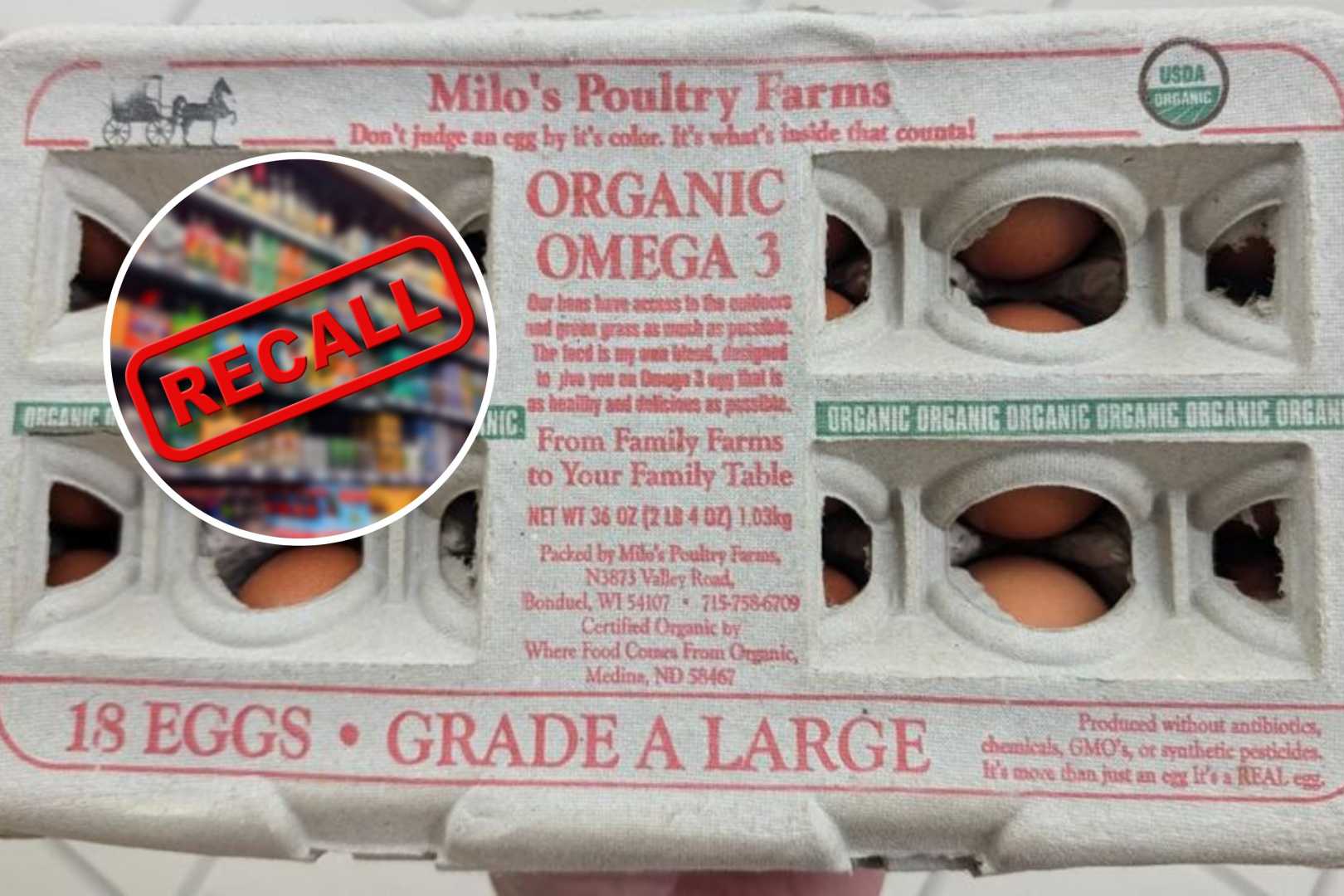News
Expanded Egg Recall Due to Salmonella Now Classified as Class I

The recent recall of eggs due to Salmonella contamination concerns has escalated as the U.S. Department of Agriculture (USDA) upgraded the situation to a Class I recall. This marks it as the most severe category, indicating a reasonable probability that consuming or being exposed to these eggs could lead to serious health consequences, including death.
The recall first took effect on September 6 and involves eggs distributed by Milo’s Poultry Farms and Tony’s Fresh Market. The affected products include all cases and carton sizes, irrespective of their expiration dates. These eggs were distributed across retail and food service locations in Illinois, Michigan, and Wisconsin.
According to the Food and Drug Administration (FDA), an estimated 345,000 dozen eggs, ranging from conventional cage-free to organic and non-GMO varieties, are part of this recall effort. Thus far, 65 individuals have reported illness, with 24 requiring hospitalization across nine states. The states affected include California, Colorado, Iowa, Illinois, Michigan, Minnesota, Utah, Virginia, and Wisconsin. Fortunately, no deaths have been reported.
Salmonella is a bacterium that poses great risk, particularly to young children, elderly individuals, and those with compromised immune systems. Symptoms of a Salmonella infection include high fever, diarrhea, which can be bloody, nausea, vomiting, and abdominal pain. In some instances, the infection can spread to the bloodstream, causing more severe illnesses such as arterial infections, endocarditis, and arthritis.
In response to the escalation of this recall, the Centers for Disease Control and Prevention (CDC) advises consumers, particularly those in the affected areas, to immediately discard any eggs from Milo’s Poultry Farms or Tony’s Fresh Market. Surfaces and utensils that may have come into contact with these eggs should be thoroughly cleaned using hot, soapy water or a dishwasher.
Consumers seeking more information are encouraged to visit the FDA or USDA websites for updates and additional guidance regarding the recall.












